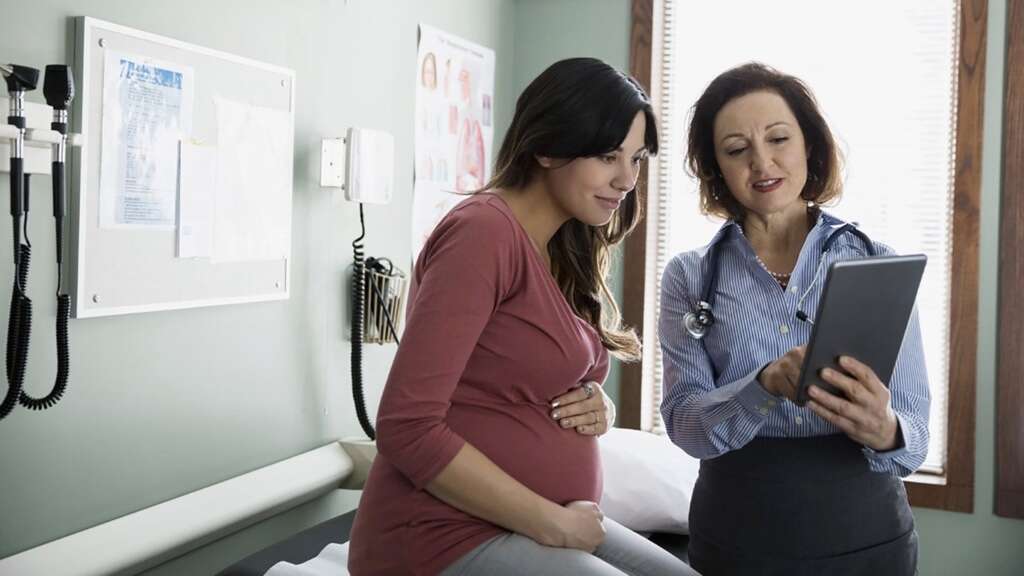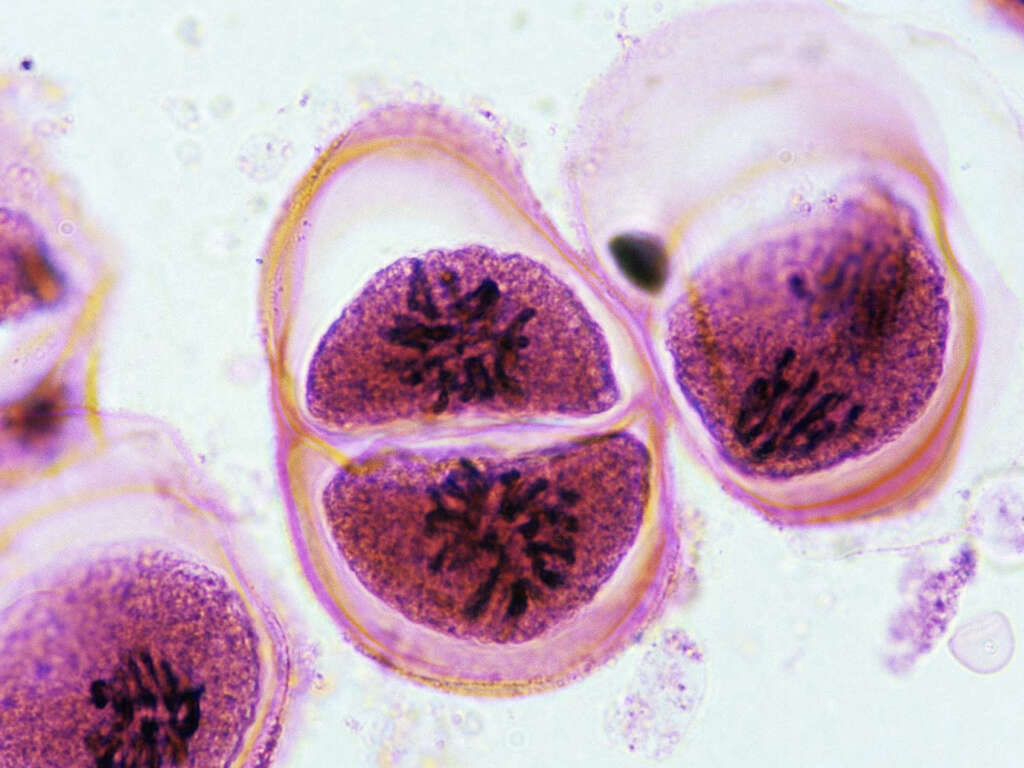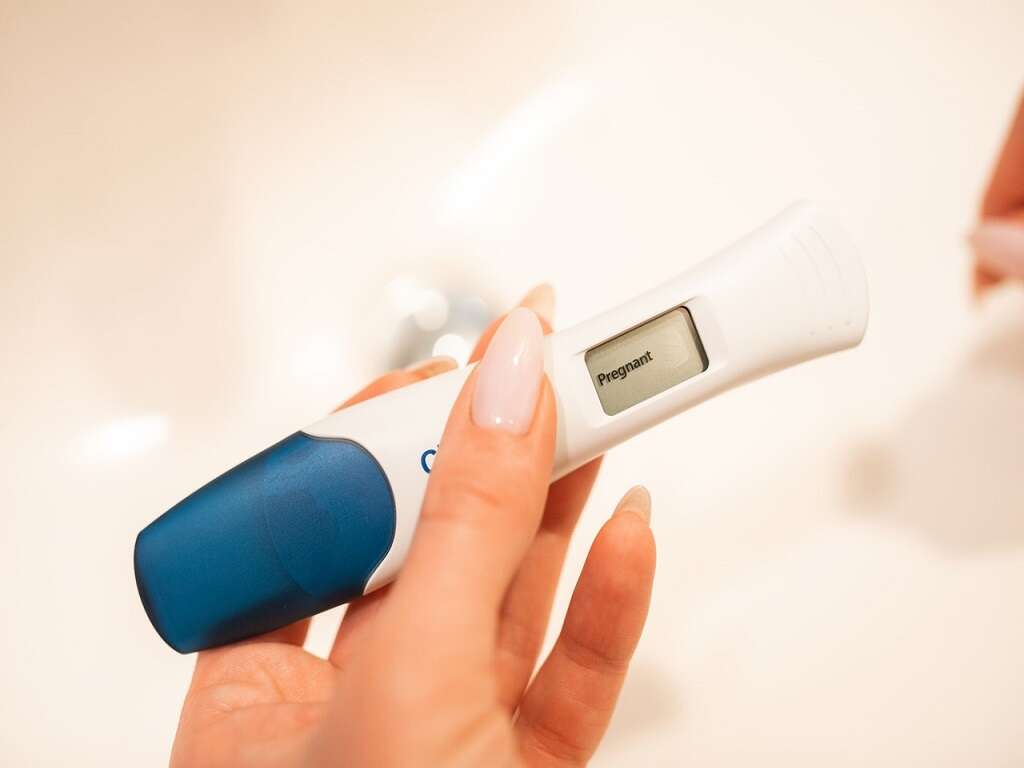10 Ectopic Pregnancy Symptoms
Ectopic pregnancy occurs when the embryo implants outside the endometrial tissue of the uterus. Many women with ectopic pregnancy have little to no symptoms. In virtually all ectopic pregnancies, the fetus rarely survives past the first trimester.
The risk factors for ectopic pregnancy include tobacco smoking (decreases tubal motility), pelvic inflammatory disease, history of infertility (≥ two years), prior tubal surgery, and use of assisted reproductive technology. Women with a previous history of ectopic pregnancy also have an increased likelihood (10-25%) of another ectopic pregnancy.
More than 90 percent of ectopic pregnancies occur in the fallopian tube. Other sites include the ovaries, cervix, and abdomen. It can be confirmed through blood tests and ultrasound. Prevention of ectopic pregnancy is to decrease modifiable risk factors. Management usually involves surgery and the use of specific medications. Ectopic pregnancy has been estimated to occur in about 1 to 2 percent of live births and can be as high as 4 percent in patients using assisted reproductive technology.
Symptom #1: Pain
Pain is caused by damaging stimuli and results in distress. It is unpleasant both emotionally and physically, and can be associated with potential tissue damage. Pain is the commonest reason for people to seek medical attention.
In ectopic pregnancy, patients may present with abdominal or pelvic tenderness. This refers to the pain or discomfort that a patient can experience when the affected area is touched. In most of these patients, it can be unilateral or bilateral, and it is usually much worse on the affected side. Some patients may also report shoulder tip pain if the pregnancy is causing internal bleeding in the peritoneal cavity. Furthermore, some patients don’t experience severe pain despite internal bleeding, but may only report mild discomfort or diarrhea. However, without timely diagnosis a ruptured ectopic can be a surgical emergency. It can present with severe abdominal or pelvic pain, abdominal rigidity, severe tenderness, as well as signs of hypovolemic shock (i.e. increased heart rate and respiratory rate). Hypovolemic shock is a life-threatening condition that results in multiple organ failure due to rapid fluid loss (i.e. internal hemorrhage) and subsequent inadequate perfusion of tissues.
Symptom #2: Vaginal Bleeding
In vaginal bleeding, blood can originate from any location of the female reproductive tract. It may be abnormal, and can be a symptom of cancer of the reproductive tract, fibroids, miscarriage, implantation bleeding, ectopic pregnancy, and more.
In an ectopic pregnancy vaginal bleeding is usually intermittent, scanty and dark colored (spotting). Some women can confuse it with an abnormal period, and may not realize they are pregnant if the spotting started around the time of their expected period. Vaginal bleeding is considered to be part of the classic triad of symptoms that can be present in ectopic pregnancy (amenorrhea, abdominal pain and vaginal bleeding). However, less than half of the patients present with all three of these symptoms. Vaginal bleeding can be seen in up to 40 to 50 percent of patients.

Symptom #3: Nausea
Nausea is an uncomfortable and unpleasant sensation where the affected individual has an urge to vomit. It is a nonspecific and common symptom seen in motion sickness, food poisoning, gastroenteritis, anxiety, depression, side effect of medications, migraine, hypoglycemia, and more.
Nausea can be a common symptom in the early stages of pregnancy. This means that it also occurs in ectopic pregnancy. In pregnancy, the nausea usually decreases by the second trimester.
Symptom #4: Vomiting
Vomiting or emesis occurs when there is an involuntary and forceful expulsion of the stomach contents through the mouth and nose. It can be seen in various conditions such as food poisoning, gastroenteritis, motion sickness, pregnancy, and more.
Vomiting in pregnancy usually occurs in the morning (but may also occur at any time of the day). It is known as morning sickness, and it can also occur in ectopic pregnancies.

Symptom #5: Abdominal Distension
Abdominal distension can occur when there is an accumulation of substances such as fluid or gas in the abdomen, causing its expansion (i.e. ascites). However, in ectopic pregnancy, ectopic rupture or leakage can result in peritonitis that can also produce abdominal distension. In short, peritonitis is the inflammation of the peritoneum, a membrane that lines the inner abdominal wall and covers the abdominal organs. Thus, the peritoneum can be easily irritated (i.e. chemically) by fluids that come into contact with it (as is the case of blood in an ectopic rupture), and/or eventually develop an infection. Thus, on physical examination patients with peritonitis can exhibit diffuse severe abdominal pain with abdominal guarding, abdominal distension and/ or rebound tenderness.
Other causes of peritonitis include pancreatitis, perforation of hollow organs (i.e. peptic ulcer), appendicitis, and more.
Symptom #6: Missed Period
The absence of menstrual bleeding or amenorrhea (secondary) is one of the most common and early symptoms of ectopic pregnancy. In normal cases, menstruation usually occurs once every 28 days (on average). A missed period is also the most common reason for women to suspect pregnancy. Other possible causes of a missed period include stress, fatigue, hormonal issues, and gaining or losing weight in a short interval of time.
Women who have missed a period and have a possibility of pregnancy should see a doctor to confirm that their pregnancy is healthy and to avoid potential complications.

Symptom #7: Breast Changes
Breast changes occur in both early and ectopic pregnancy. When pregnancy begins, the breasts start to become more swollen leading to tenderness and soreness. This also causes the breasts to feel full and heavy. The areola (area surrounding the nipple) also becomes darker.
These changes in the breasts can be attributed to the hormonal changes that occur when pregnancy begins. Discomfort in the breasts usually decreases once the body has adapted to the hormonal changes.
Symptom #8: Tachycardia
Tachycardia is a term describing heart rate exceeding the normal range. It can be defined as more than 100 beats per minute. Tachycardia can be associated with conditions such as adrenergic storm, use of amphetamines, anemia, anxiety, atrial fibrillation, caffeine or alcohol consumption, hypoglycemia, hyperthyroidism, and more.
In ectopic pregnancy, since the implantation of the embryo occurs elsewhere besides the uterus, the continual growth of the embryo can cause rupture, leading to massive bleeding and shock. Tachycardia in shock occurs when the heart pumps faster to try to compensate for the lack of oxygen or blood supply to parts of the body.

Symptom #9: Dyspareunia
Dyspareunia or painful intercourse can be a symptom of ectopic pregnancy. However, it can also be a symptom of several other conditions.
During physical examination, patients with this condition can experience tenderness when the cervix is mobilized in bimanual examination. Cervical motion tenderness can be a sign of peritoneal inflammation due to ectopic rupture or leakage. However, it is also a common finding in other medical conditions (i.e. pelvic inflammatory disease).
Symptom #10: Fatigue
Fatigue is a complex symptom that is often overlooked by physicians because of the difficulties in defining and treating it. Fatigue encompasses a range of complaints including malaise, lethargy, lassitude, and exhaustion. It can be seen in various cases such as overworking, depression, stress, sleep deprivation, infections, nutritional deficiencies, pregnancy, anemia, and many more. It is a common and nonspecific symptom.
In pregnancy, it has been attributed to the increasing levels of the hormone progesterone along with a combination of other factors such as hypoglycemia and iron deficiency anemia. It is a common symptom usually seen in the early stages of pregnancy.











